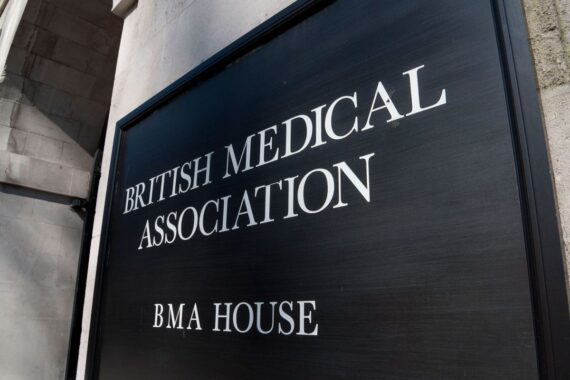Urgent care plan jeopardises patient safety by pushing workload onto GPs, BMA warns

The NHS urgent care plan is likely to push workload onto already-overworked GPs and their teams and thereby jeopardising patient safety, the BMA has warned.
BMA chair Professor Phil Banfield’s comments come after NHS England outlined a two-year plan to ‘help recover urgent and emergency care‘ yesterday.
Under the urgent care plan, care provided in the community will be expanded to ensure ‘people can get the care they need at home,’ without the need for a hospital admission.
The Government said the measures will be ‘aligned with priorities for primary care,’ including the forthcoming GP access recovery plan and the implementation of the Fuller stocktake report.
But Professor Banfield said the plan shows the Government lacks understanding of the NHS crisis and that the BMA will be publishing its own emergency plan in the coming days.
This will put ‘valuing healthcare workers front and centre, with immediate solutions like addressing pay restoration and punitive pension taxation’, the BMA added.
The Government plan promised ‘boosted frontline capacity’, with 800 new ambulances, including 100 mental health vehicles and 5,000 more hospital beds, backed by a £1bn fund, but did not address the workforce crisis.
Professor Banfield said: ‘The irony of looking at new ways of delivering care in the community is not lost on hardworking GPs who have offered to sit down to negotiate delivery of better services.
‘If the NHS has any chance of surviving that long, then we need to see immediate funding as well as steps taken to retain and boost our workforce.
‘People aren’t leaving the NHS solely because they struggle to work flexibly, as this plan suggests.
‘They’re leaving because they aren’t paid fairly, are subject to punitive pension taxation, and don’t feel valued.
‘It’s therefore laughable that with 133,446 vacancies across the NHS, the Government still hasn’t addressed the workforce crisis. They may be able to source more ambulances, but who is going to staff them?’
He added that the only mention of active recruitment was in relation to NHS 111 and that comes from recruiting healthcare workers ‘from other, already severely understaffed parts of the health service.’
He said: ‘Moving existing staff and finances around is not the way to fix this.
‘Virtual wards, for example, are an attempt to free-up capacity in hospitals, but these patients still need monitoring, which requires someone to do this.
‘It’s the same problem, just in a different place. Without a dedicated workforce and significant resource for this, now, it’ll likely fall to already-overworked GPs and their teams to pick up the workload, pushing up waiting times in general practice and jeopardising patient safety even further.
‘As things stand, there’s no guarantee ambulances will be able to reach patients if their conditions deteriorate, and we urgently need to see capacity improved in social care.
‘Doctors are repeatedly looking to innovate, but must be facilitated and funded to do so.’
Related Articles
READERS' COMMENTS [2]
Please note, only GPs are permitted to add comments to articles










Of course GPs were going to roped into this, as they are ‘best placed’
The Government plan promised ‘boosted frontline capacity’, with 800 new ambulances, including 100 mental health vehicles and 5,000 more hospital beds,
There was an article in hsj. 4000/5000 “new” beds are existing unsuitable beds in temporary pop up ward type situations being made permanent and into proper wards. So not increased capacity. Bit like the “new” hospitals. And the article said much of the “new” ambulances were to replace old ones